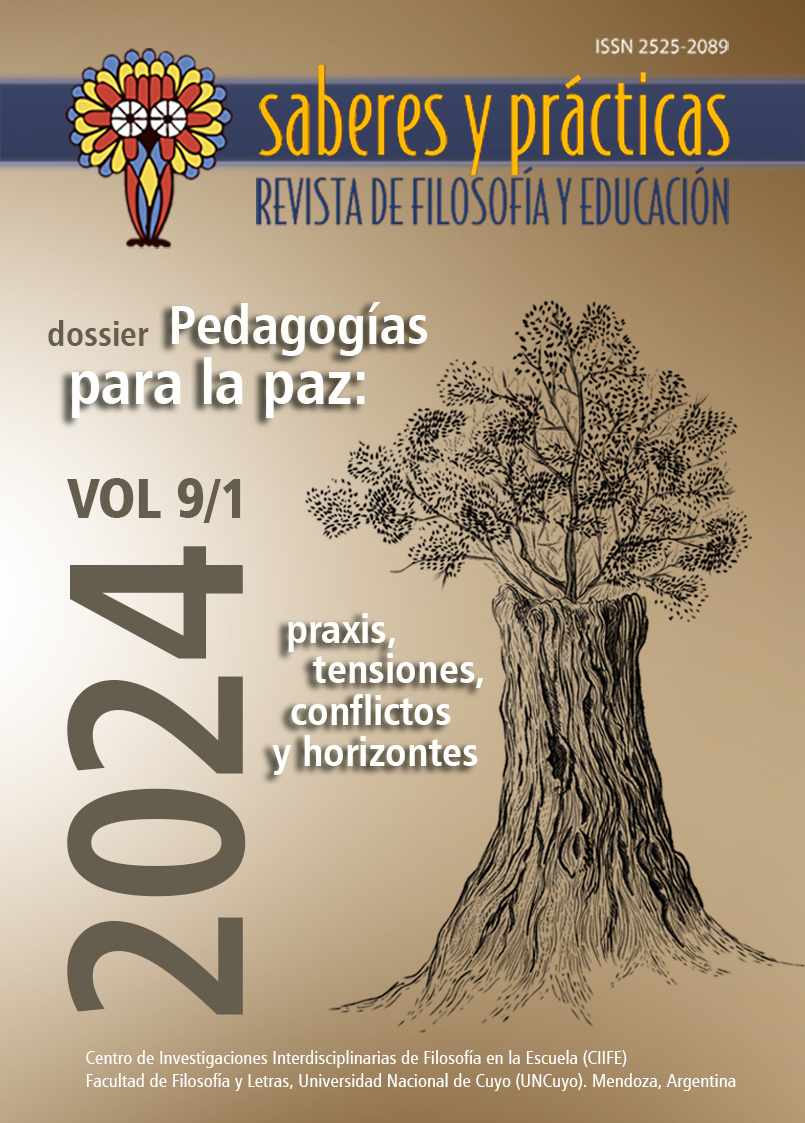Peace in Colombia: Psychosocial Construction of a Pedagogy of Coexistence
DOI:
https://doi.org/10.48162/rev.36.115Keywords:
Pedagogical model, coexistence, peaceAbstract
The experience of reality is a product of our actions where we can consciously and deliberately participate in its construction as well as evaluate and review our actions to consciously influence the consequences of them. To characterize everyday life, we turn to the experiential and intuitive dimension rather than the rational and verbal dimension. We carry out organized exercises to describe the experience through drawing, the exchange of experiences and emotions, as well as verbal and logically supported and argued descriptions. Reality is the result of the attitudes, behaviors, and discourses that we put into play in our relationships with others. From this psychosocial approach, this article bets that it is possible to educate for coexistence in community contexts if we have living concepts, and coherent about coexistence and with a pedagogical model based on the affective and in accordance with the social context addressed.
Downloads
References
Cámara de Comercio de Cali (1993). Programa Ciudadano El Cali que queremos. Informe interno.
Campo, D. (2005). La convivencia familiar: un nuevo escenario para la educación popular. Tesis de Magíster. Magíster en Educación con énfasis en Educación Popular y Desarrollo Comunitario. Cali: Universidad del Valle.
Campo, D, et al. (2002). Pedagogía para la convivencia y la democracia. Modelo EDUPAR. Artes Gráficas del Valle.
Capra, F. (1998). La trama de la vida. Anagrama.
Consejería de Paz (1997). Estudio epidemiológico de la violencia en la ciudad de Cali. Alcaldía de Santiago de Cali. Informe Interno.
Constitución Política de Colombia (1991). Fabriescolares.
Moncayo, K. (2006). La construcción de la comunicación y las relaciones de convivencia desde una perspectiva psicosocial. Trabajo de Grado. Instituto de Psicología. Universidad del Valle. Cali.
Plan Nacional de Desarrollo 2014-2018 – Departamento Nacional de Planeación. Bogotá. https://colaboracion.dnp.gov.co/CDT/Prensa/ArticuladoVF.pdf
Política Pública de Convivencia Familiar Para el Municipio de Santiago de Cali. (2005) Santiago de Cali. Secretaría de Desarrollo Territorial y Bienestar Social, EDUPAR.
Published
How to Cite
Issue
Section
License
Copyright (c) 2024 Carlos Arango Cálad
This work is licensed under a Creative Commons Attribution-NonCommercial-ShareAlike 2.5 Argentina License.





















